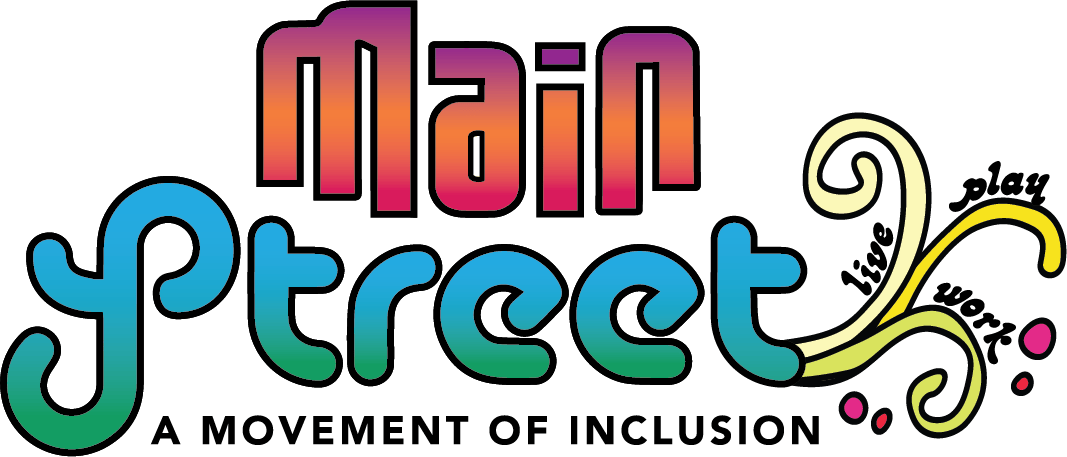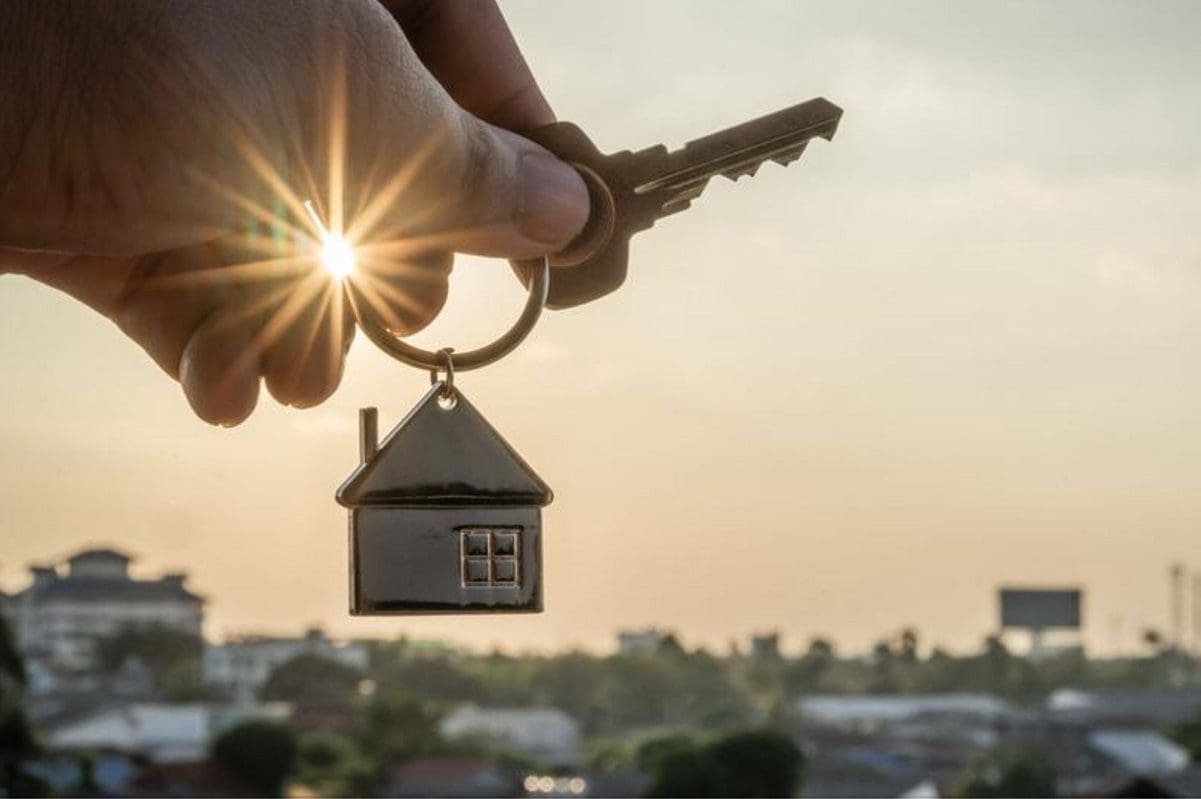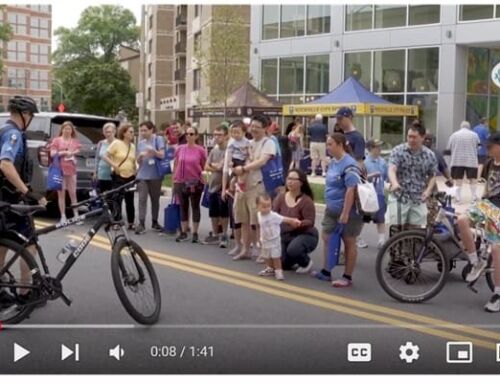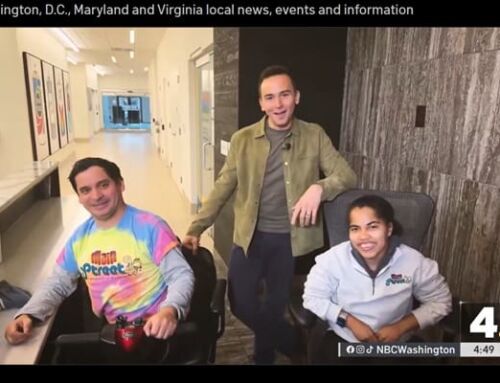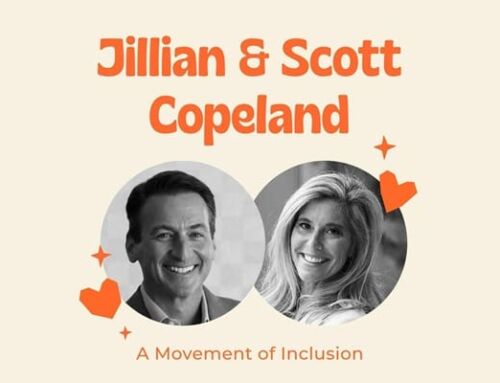WTOP News – Sponsored content by Melwood (May 13, 2022) –Rewind to a century ago – cut out of employment, housing and society, the only path for people with disabilities was institutionalization.
Over the next several decades, the United States witnessed national movements towards community-centered group housing and, subsequently, greater opportunities for independent living, to include the adoption of the Americans with Disabilities Act (ADA) in 1990. The ADA was passed to ensure equal access for people with disabilities to the same opportunities as every other American.
Progress has been steady, but slow, and it is not enough. There are still persistent opportunity and equity gaps.
Economic independence is the cornerstone of American life – or the American Dream, if you will. This includes the opportunity to work, create, innovate and build wealth. Or, as Melwood, a leading employer, advocate and preferred provider for people with disabilities would put it “to live, work and thrive.” Unfortunately, because of continued cultural stigma and a workforce that has been widely and openly exclusive of people with disabilities, economic independence continues to be an elusive dream for many.
For nearly 60 years, Melwood has been fighting this stigma, breaking down barriers and building paths to independence, empowering people with disabilities through meaningful employment and advancement opportunities in both the public and private sectors. Their mission is to realize a world where people with disabilities are fully included. Already established as an employer and job trainer, now the organization is embarking on what it believes is the next critical component of its core mission – inclusive housing.
In December 2021, Melwood took the first step to building an accessible, inclusive and affordable housing community for people with and without disabilities in Arlington, Va. The organization filed a request for a General Land Use Plan (GLUP) study with Arlington County to explore the option of converting one of its existing properties to a multi-functional building, with housing and job training programs on-site.
Affordable housing can be a challenge for anyone to find, especially right now and particularly in the Washington, DC region. However, for people with disabilities, the barriers are significantly greater. An estimated 75% of adults with intellectual and development disabilities live with their parents or other family members, though 62% report dreaming of living in their own house or apartment.
Consider that the unemployment rate for people with disabilities is twice that of people without disabilities. Consider that the annual income for a single person on Supplemental Security Income – payments to adults and children who have low income and resources, and who are disabled – living alone or paying their share of food and housing costs is $9,528. Consider that in Arlington the median monthly rent for a one-bedroom unit is $2,013 and a two-bedroom is $2,437.
To address this need and create a model for the future, Melwood plans to redevelop its 23rd St. S. property in Arlington into an affordable 104-unit residential building, with a mix of 1, 2 and 3-bedroom units, setting aside approximately 1/3 of those units for people with disabilities, furthering Melwood’s vision for inclusion over isolation. The proposed development will also include space for Melwood to continue to provide employment opportunities, workforce development support services, and community programing for a projected 250 people with disabilities. The property has easy access to transportation and is a prime location for people to live and be able to commute to work and to walk to restaurants and shopping.
“It’s part of our ongoing commitment to create more inclusive spaces, and to empower people with disabilities to live, work and thrive as a part of the community and not as part of a segregated group home or a segregated workshop, where you’re only working or living next to other people with disabilities,” Melwood President and CEO Larysa Kautz said.
Jillian Copeland knows the significance this project will have for the housing landscape in Arlington and the power of housing to foster independence and economic empowerment. Copeland is the chairperson of Main Street Connect, a nonprofit organization that recently developed an affordable, accessible, inclusive apartment complex in Rockville, Maryland.
Seventy-five percent of Main Street’s 70-unit apartment building, located at Rockville Town Center, is slated for affordable housing and 25% of units are set aside for adults with disabilities.
“For so many years, living in a group home was the primary option for adults with disabilities who weren’t living with a family member,” said Copeland. “At the same time, many of these homes were not accessible nor close to public transit. We never really asked people where would you like to live? We just took them out of these congregate settings, and said, ‘OK, we have a house for you here.’ We didn’t give them a choice of who to live with. We didn’t give them a choice of who they’re staffing at that group home or really a choice of who they wanted to spend time with.”
With minimal support systems in place, adults with disabilities can live on their own. These supports can be as simple as a reminder to take their medications or to turn off the stove after they are done cooking, Kautz said.
Copeland said she believes that Main Street residents require less familial and paid support over time because of the built-in support from people living next door to them and because of programming opportunities in the building that foster community and reinforce independent living and social skills.
Community engagement, wraparound support and programming for all people of all stages and ages of life for people with and without disabilities are available at the Main Street complex. Most of these are offered in the community center, which is on the ground floor of the apartment building.
“Melwood Arlington, I believe, will provide all of these things … a chance for someone to live independently, affordably and even more broadly, an opportunity to participate in community,” said Copeland. “I believe Melwood will engage and provide true, organic inclusion, where all people are valued and provided a seat at the table.”
Moreover, the project will create opportunities for belonging, which Copeland said is essential.
“It’s a big step, and a step that I think is amazing and will encourage others to follow their lead,” Copeland said.
Everyone deserves their own Stomping Ground
It takes more than four walls and a roof to make a house a home, and that’s where an organization like Virginia-based Our Stomping Ground – Inclusive Communities can help.
Our Stomping Ground works closely with affordable housing partners to help fill units set aside for persons with developmental disabilities within apartment complexes. Afterward, the organization helps residents transition to the community and supports them through integrated programming such as volunteering, clubs, daily walks and other opportunities for people to connect and socialize.
“What we’re trying to do is provide community for everyone,” Paula Manion, founder and chair of Our Stomping Ground, said. “We’re constantly trying to think of how we can have a presence within each of our communities as well as outside of our communities so that everyone is included whether they live in an Our Stomping Ground Community, a group home or their family home.”
Manion said that units reserved for people with disabilities oftentimes have a hard time getting filled, in part due to parents who may be hesitant for their adult children with a disability to live in a place where they would be alone. Manion is asking parents to “jump in the deep end.”
“The truth of the matter is, when our adults live with us, then it makes it difficult for them to gain the skills they can and should,” Manion said. “We’re just like any other parent – as long as your child lives in your house, you tend to do things for them. That’s why we believe that taking that jump and providing those community-based resources is the key.”
The next critical piece is figuring out what each individual needs and what accommodations will empower that person to live a more meaningful and independent life.
“I often think of it in terms of Maslow’s Hierarchy of needs. At the bottom of the triangle sit all the basic needs like housing and supports – that might be technology that helps to keep a person safe, a live-in aide, or even a neighbor and these things are necessary to have in place so that the individual can get to the top of the triangle and experience a more meaningful life – one that is rooted in a shared sense of community,” Manion said.
Lastly, educating the rest of the community is key because “adults with disabilities are at high risk for poor interactions with law enforcement,” Manion said.
An informed community would have a sense of their neighbors and can intervene on behalf of a resident with a disability.
“I think that’s really important when people begin to understand that just because someone is hopping or talking to themselves or displaying another kind of tick, it doesn’t necessarily mean they’re a danger or a threat to anyone around them … so we have a lot of work to do in the greater community to empower people to advocate for themselves and one another. But you won’t get that work done unless you put those adults right in the heart of the community,” Manion said.
Melwood Arlington adds another piece to its holistic approach
In its commitment to building paths to independence and creating more sustainable, inclusive communities, Melwood has been tackling disability employment inclusion from every angle – job training, job placement, job coaching and strategic partnerships with employers. Melwood is always listening to its participants and community members – and that’s how this project was born. “As more people get jobs, we hear constantly about the housing and transportations struggles that they face,” Kautz said. “And before you can get somebody to be sustainably employed, you need to address these barriers. ”
Kautz said the Arlington project will make the neighborhood more inclusive and afford the same opportunities for residents with disabilities to be close to jobs and public transportation, and to be part of a community.
Whether you have a disability or not, it’s hard to meet people. “We all struggle, sometimes, with finding that group of friends and community that adopt us as part of their own,” Kautz said.
Moreover, there’s a desire to be independent. Melwood works with children at an early age with programs such as Camp Accomplish, and it also works with transitioning youth coming out of high school and helping them find jobs or further their education in an inclusive setting.
“Inclusive housing is that last piece that we hadn’t really focused on, so I’m very excited that Melwood is taking this leap to ensure that we can increase the amount of accessible and inclusive housing that’s available” Kautz said.
Kautz also reinforced the importance of community buy-in and support for the project – and the broader vision for a fully inclusive world.
“This only works if everyone – including people without disabilities – are investing in and participating in this community,” Kautz said. “It really comes down to being open to having neighbors who are different than you – and not just living next door to them, but truly engaging with them, learning who they are, and building relationships. That’s how we build a better future with choice for all people, with and without disabilities.”
###
This was originally published at https://wtop.com/sponsored-content/2022/05/why-we-need-more-inclusive-affordable-housing-for-people-with-disabilities-now/ on May 13, 2022.
